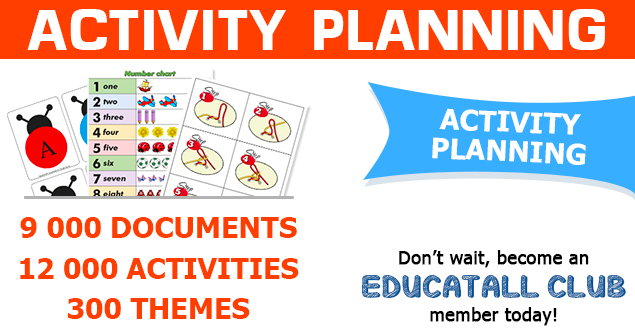
Teaching children organizational skills
Organization can represent a challenge for many young children. For some, this difficulty will remain present despite your effort to develop organizational skills. This is often the case for children with ADHD (Attention Deficit Hyperactivity Disorder). They may lose their personal belongings, forget their toys, misplace their mittens, or have trouble organizing their actions to reach a specific goal. Of course, these observations can also be made with children who have never received a precise diagnosis.
As children get older, organizational difficulties can impact different aspects of their daily life. Children may, for example, forget their homework, have trouble integrating various routines, etc. This will inevitably lead to conflicts. While children are still quite young, certain daily interventions can help them acquire and build basic organizational skills. The following list suggests several tricks that can be helpful for both you, as early childhood educators, and the children you care for. Note that the educatall club also offers many tools that can be used with your group.
The most important trick that I wish to share with you is the importance of observing, targeting, and intervening on a single aspect at a time. Take the time to observe a child's challenges and select one aspect that you wish to work on with a specific type of intervention. This will make it easier to progressively integrate changes. Avoid trying to work on everything at the same time.
Make use of illustrated routines. In a daycare setting, there is a weekly routine, a tooth brushing routine, a hand washing routine, a getting dressed routine, etc. All these routines can be difficult for children to remember and execute. For this reason, visual aids and the early childhood educator's support are necessary. Use illustrations to execute routines step by step with your group. Children will gradually begin to complete them independently. You will find several visual routines in the educatall club. Here are a few examples:
Bathroom routine: http://www.educatall.com/members/Documents/Document_3170.pdf
Naptime routine: http://www.educatall.com/members/Documents/Document_2948.pdf
Tooth brushing routine: http://www.educatall.com/members/Documents/Document_4560.pdf
Identify storage bins to simplify cleanup time. Putting toys away in the right place can represent a challenge for many children. Unless you are willing to follow their every move to make sure things are put away properly, children need a simple cleanup method they can follow. Use simple illustrations to identify your storage bins. You will find storage bin labels in the educatall club:
http://www.educatall.com/members/Documents/Document_66.pdf.
Display each child's picture on his/her cubbyhole or basket. Seeing their picture will make it easy for children to know where to put their personal belongings. Visual cues are great for helping children get organized.
Display Post-it notes or illustrations in strategic locations. They will act as reminders. For example, sticking a picture of a blanket in children's cubbyhole may help them remember to bring their blanket home at the end of the day.
Often, children with organizational difficulties can have trouble picking an activity during periods of free play. Prepare a chart containing several illustrations that represent different game and activity suggestions. Children can use the chart to pick and choose what they would like to do. If they continue to have trouble selecting an activity, limit the number of suggestions. For example, you may offer three or four possibilities instead of ten.
Once again, I must remind you that consistent interventions are key to seeing long-term results. Do not hesitate to use the many tools available in the educatall club to organize your daily activities.
Maude Dubé, Specialized educator

 Home
Home Theme activities
Theme activities
 Babies and toddlers
Babies and toddlers
 Arts and crafts
Arts and crafts
 Science
Science
 Creative recipes
Creative recipes
 Tips and tricks
Tips and tricks
 Special needs
Special needs
 Extra activities
Extra activities
 Educ-TV
Educ-TV
 Newsletter
Newsletter  Online store
Online store Educatall club
Educatall club

